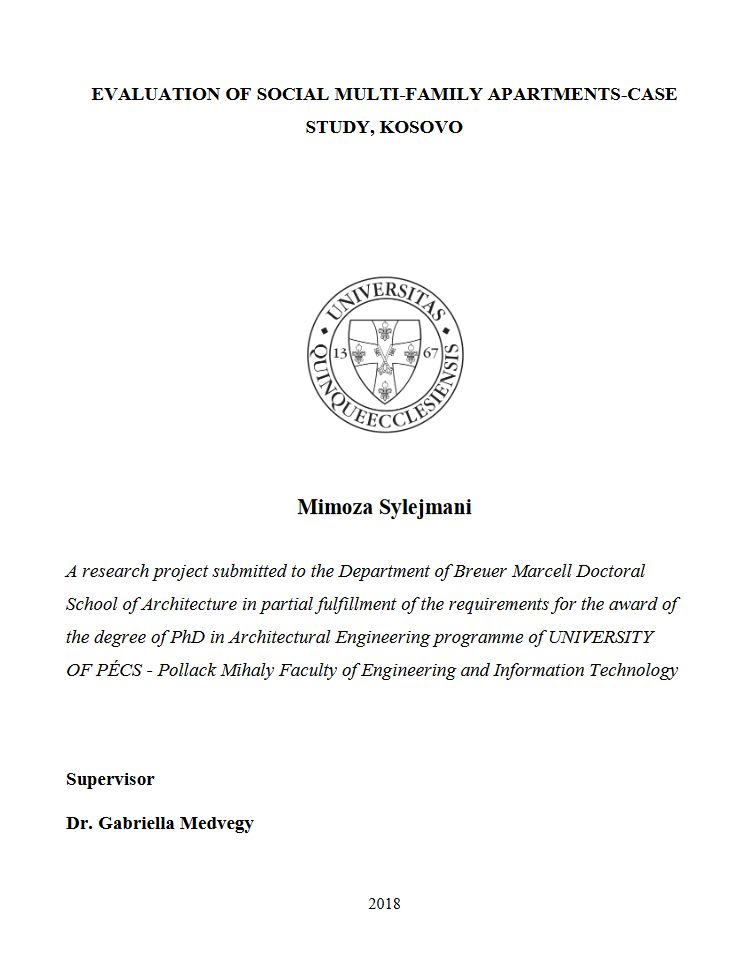Evaluation of Social Multi-Family Apartments-Case Study, Kosovo
Abstract
Governments across the world are making efforts to provide adequate and affordable housing for their citizens. The Government of the Republic of Kosovo is joining these efforts through a bidding invitation to build social housing, thus giving the opportunity to various companies to build them.
The need for the construction of social housing buildings in our country is quite large, given the high unemployment rate and the large number of people living in miserable conditions eighteen years after the end of the war. The housing problem in Kosovo is quite large and complicated, and this problem lies not only in quantity but also in quality.
The study describes a brief history of multi-family apartments in Kosovo, the changes that have occurred over time, both in the functional aspect and square meters (m2). However, the main focus remains the evaluation of social housing schemes performance.
The objective of this study is to examine the quality of social housing units provided by the Government of the Republic of Kosovo and evaluate them from their functional point of view. Furthermore, it aims to evaluate their physical characteristics and the neighborhood in which they are built and to examine the socio-economic characteristics of inhabitants, as well as to ascertain the factors that affect the satisfaction of the residents. In other words, it aims to evaluate the performance of social housing construction in the Republic of Kosovo, and to ascertain whether they fulfill the Government's goals as well as the needs of the users.
The study has provided primary and secondary data. Quantitative data is provided through the administration of housing units questionnaires based on the social housing sample distributed throughout the Republic of Kosovo initiated by the Government.
The study proves that the majority of the residents are not satisfied with the size of housing units. They do not meet the needs of the residents who live there. This has been proven by analysis that are made in terms of square meters (m2), and the number of rooms in relation to the number of household members. A large number of household members characterize Kosovo, and this fact is even more pronounced in low-income families. The infrastructure where social multi-family apartments are located is below every level. The Residents feel discriminated from the rest of the population.
It is recommended that the Government should pay attention to the provision of public housing for social cases in order to increase residential satisfaction, to build larger and more diverse housing units with flexibility possibilities, so that in case of change of family structure, they have the opportunity to adapt depending on the need, thus providing livelihood for all generations. Proposal options on the expansion of housing units for existing multi-family apartments have been provided, and suggestions have been made about future policies in the area of social housing.

